Full Name:
Morris Chang (Chinese: 張忠謀, Pinyin: Zhāng Zhōngmóu)
Date of Birth:
July 10, 1931
Place of Birth:
Ningbo, Zhejiang Province, Republic of China (relocated to Hong Kong, then the United States)
Education:
-
B.S. in Mechanical Engineering – Massachusetts Institute of Technology (MIT), 1952
-
M.S. in Mechanical Engineering – MIT, 1953
-
Ph.D. in Electrical Engineering – Stanford University, 1964
Career Overview:
Texas Instruments (1958–1983):
Morris Chang began his career at Texas Instruments (TI), where he spent 25 years rising through engineering and executive ranks. He led TI’s semiconductor business and became known for pioneering work in semiconductor manufacturing and global operations.
General Instrument (1984–1985):
Served briefly as president and COO of General Instrument Corporation.
Founding of TSMC (1987):
At age 55, Chang was recruited by the Taiwanese government to spearhead Taiwan’s semiconductor industry. With funding from the Industrial Technology Research Institute (ITRI), Philips, and the Taiwan government, he founded Taiwan Semiconductor Manufacturing Company (TSMC) in 1987 — the world’s first dedicated semiconductor foundry.
TSMC Legacy:
-
Pioneered the Foundry Model: Enabled “fabless” companies to innovate without capital-intensive fabs.
-
Catalyst for Global Chip Design Ecosystem: Enabled the rise of companies like NVIDIA, AMD, Apple, and Qualcomm.
-
Elevated Taiwan’s Global Status: Made Taiwan central to the global electronics supply chain.
-
Steered TSMC’s growth: From a niche player to the world’s most advanced semiconductor manufacturer.
Key Roles:
-
Founder and CEO, TSMC: 1987–2005
-
Chairman, TSMC: 1987–2018 (with a brief return as CEO 2009–2013)
-
Advisor to Taiwan Executive Yuan (post-retirement)
Awards and Honors:
-
IEEE Medal of Honor (2011)
-
Order of Brilliant Star with Grand Cordon (Taiwan)
-
Inductee, U.S. National Academy of Engineering
-
Top 100 Global Thinkers – Foreign Policy Magazine
-
Honorary Doctorates: Stanford, National Taiwan University, and others
Notable Quotes by Morris Chang:
“Without manufacturing, design is just a dream.”
– On the symbiosis of design and manufacturing in semiconductors.
“Real men have fabs.”
– In response to critics of capital-intensive chip manufacturing, advocating the strategic value of owning fabs.
“I did not predict that we would become the world’s largest foundry. I just saw a niche, and we pursued it.”
– On the early vision of TSMC.
“Innovation alone is not enough; execution is everything.”
– Reflecting on TSMC’s success through disciplined engineering and management.
“I wanted to do something significant for Taiwan. I had nothing to lose.”
– On why he accepted the call to return from the U.S. to found TSMC at age 55.
“The foundry model is a virtuous cycle. The more customers we support, the more innovation we attract.”
– On the scalability and network effect of the foundry business model.
“The U.S. lost its manufacturing competitiveness because it outsourced too much.”
– Warning on over-reliance on offshore chip production.
“Good leadership is about being decisive in the face of uncertainty and humble in the face of success.”
– His philosophy on management.
Legacy and Impact:
-
Architect of the Global Semiconductor Ecosystem: Chang’s vision gave rise to the fabless-foundry model that underpins the modern semiconductor industry.
-
Mentor to Industry Leaders: He influenced generations of engineers, including key figures in TSMC, MediaTek, and across Silicon Valley.
-
Voice for Tech Sovereignty: Post-retirement, Chang has spoken extensively about geopolitics, U.S.-China tech tensions, and Taiwan’s critical role in global supply chains.
Personal Life:
-
Married to Sophie Chang (張淑芬), a philanthropist.
-
Father of three children.
-
Known for his disciplined daily routine and passion for classical music and literature.
- Master bridge player
In Popular Culture:
-
Widely regarded as the “godfather” of Taiwan’s semiconductor rise.
-
Subject of books, documentaries, and tech history retrospectives.
-
His story is often cited as a model of late-career impact and visionary industrial leadership.
Also Read:
Share this post via:

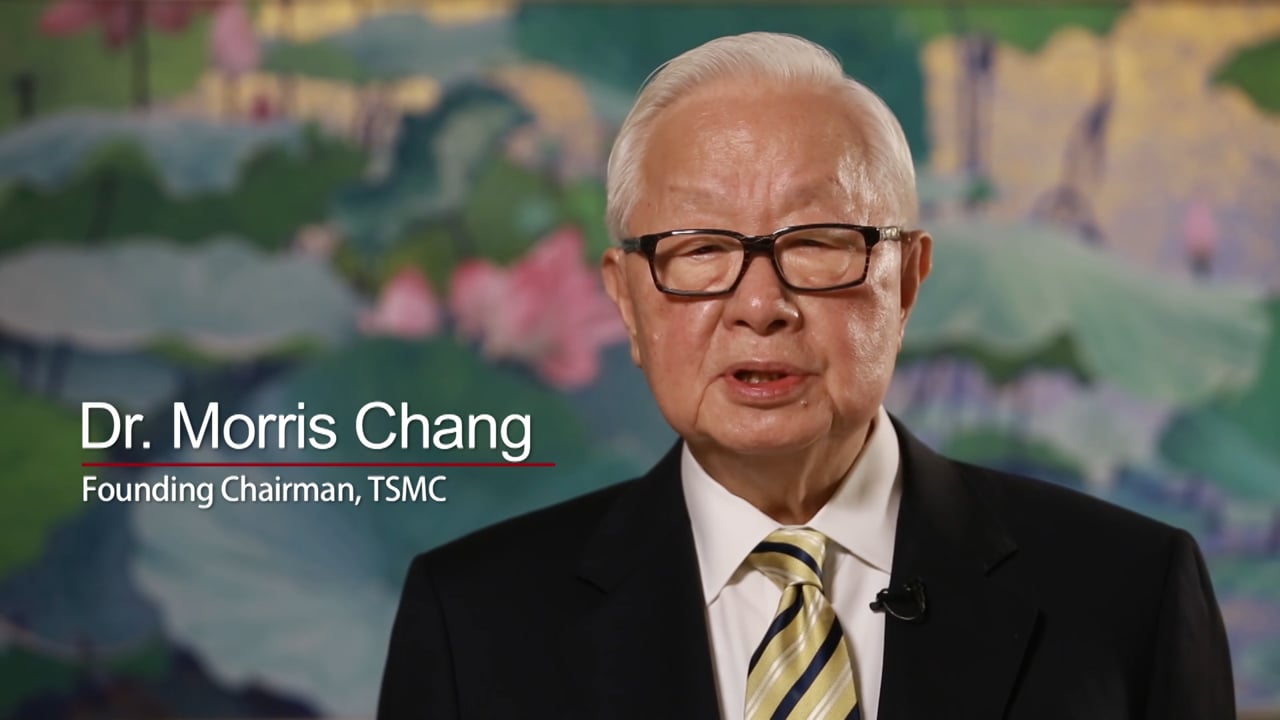

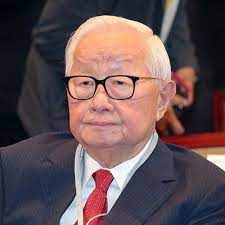
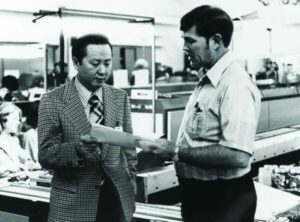
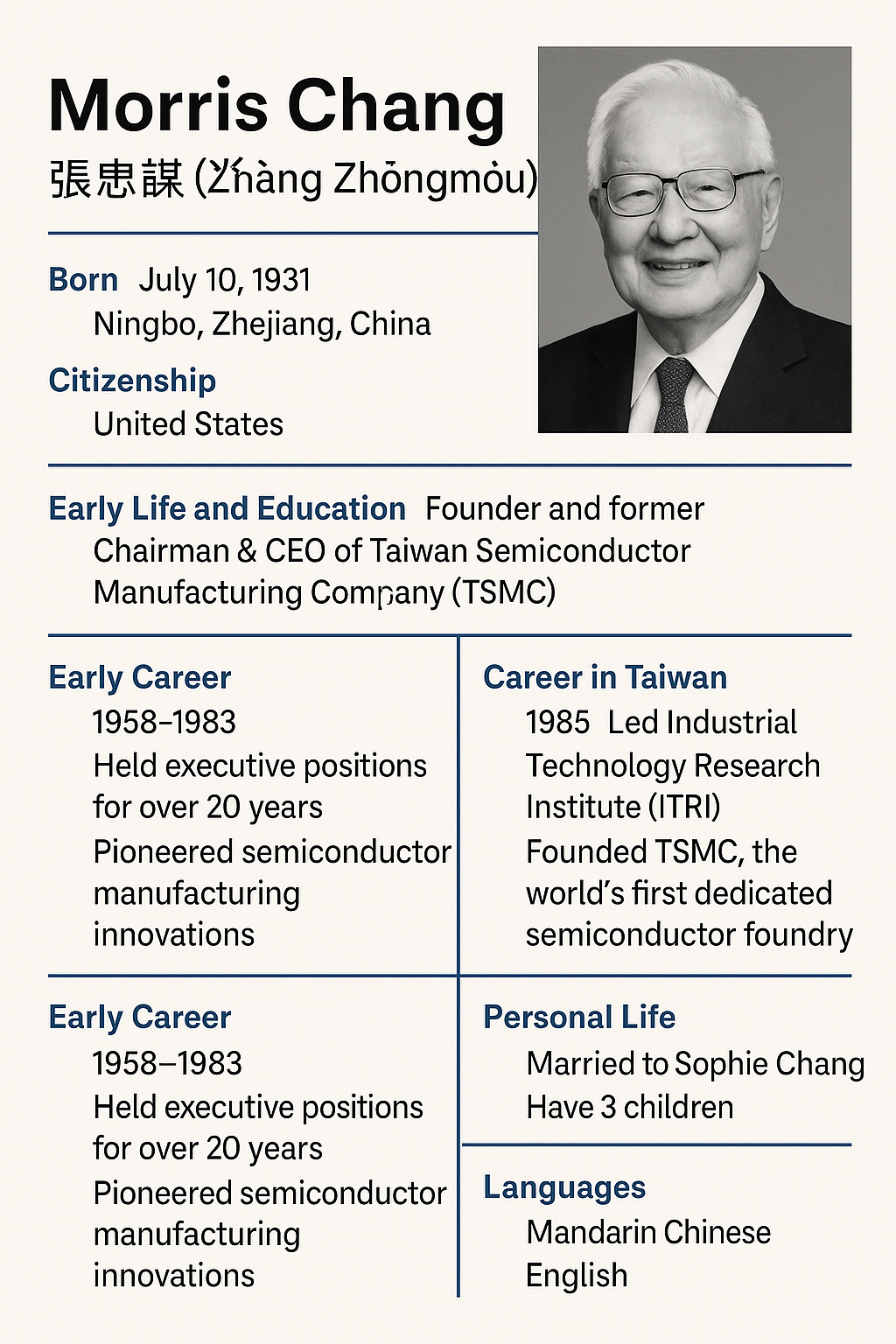




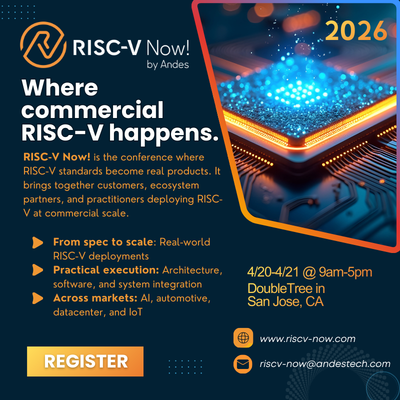
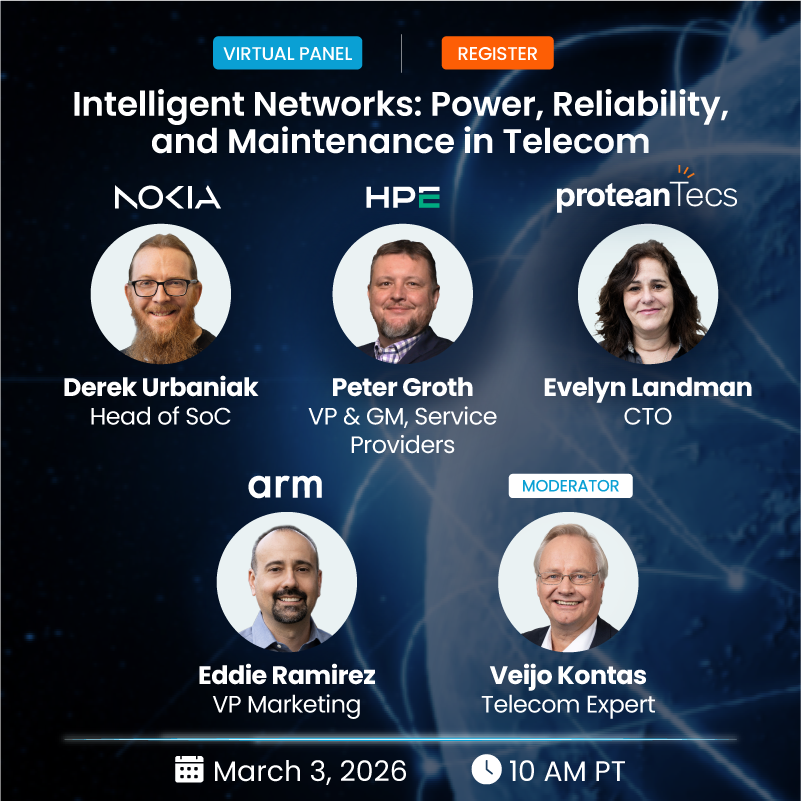
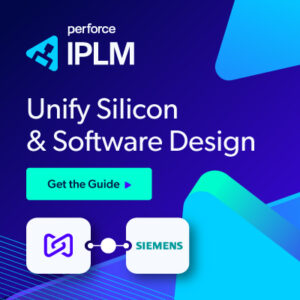
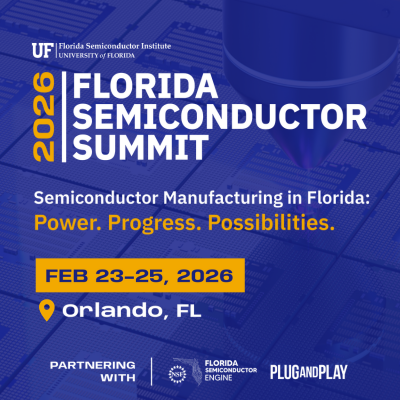
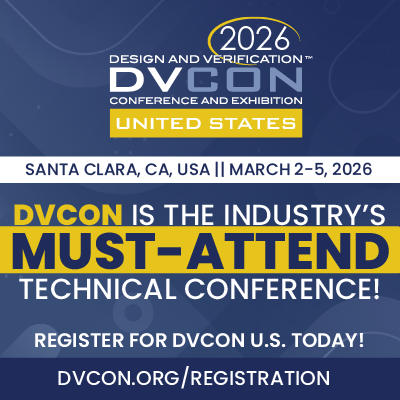
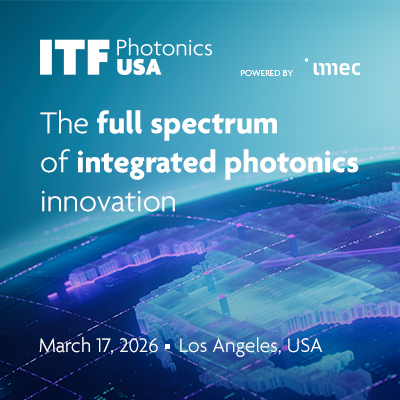


A Century of Miracles: From the FET’s Inception to the Horizons Ahead